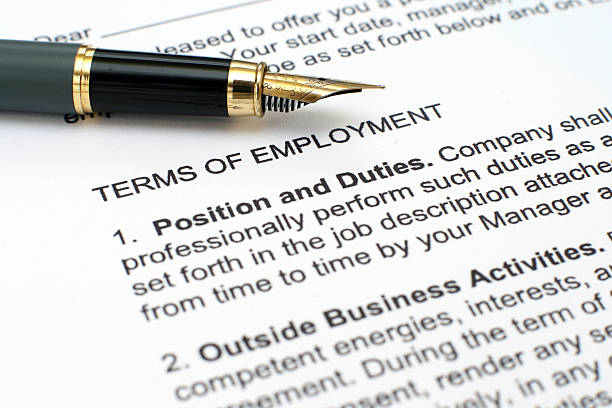Navigating Employment Law in Malta
Whether you’re an employee, employer, or HR professional, understanding these laws is crucial for maintaining a compliant and harmonious workplace.
Key Legislation Governing Employment in Malta
Malta’s employment law is primarily governed by several key pieces of legislation. These laws collectively establish the rights and responsibilities of both employers and employees.
1. Employment and Industrial Relations Act (EIRA)
The Employment and Industrial Relations Act (Cap. 452) is the cornerstone of employment law in Malta. It addresses various aspects of employment, including:
- Employment Contracts: EIRA mandates that all employees must receive a written contract outlining their terms of employment, including job description, salary, and working hours.
- Termination of Employment: The Act specifies the procedures for lawful termination, including notice periods and grounds for dismissal. It also covers redundancy and unfair dismissal protections.
- Dispute Resolution: EIRA establishes procedures for resolving employment disputes through the Industrial Tribunal and other dispute resolution mechanisms.
2. The Occupational Health and Safety Authority Act (OHSA)
The Occupational Health and Safety Authority Act (Cap. 424) sets out requirements for maintaining health and safety standards in the workplace. Key aspects include:
- Workplace Safety: Employers are required to provide a safe working environment and conduct regular risk assessments.
- Employee Training: Employers must ensure that employees receive appropriate training on health and safety practices.
- Reporting Accidents: There are mandatory reporting requirements for workplace accidents and incidents.
3. The Equal Opportunities (Persons with Disability) Act
This Act (Cap. 413) ensures that individuals with disabilities are provided with equal opportunities in employment. It includes provisions for:
- Accessibility: Employers must make reasonable adjustments to accommodate employees with disabilities.
- Anti-Discrimination: The Act prohibits discrimination based on disability in hiring, promotion, and other employment practices.
Key Rights and Responsibilities
Understanding your rights and responsibilities under Maltese employment law is essential for a fair and compliant workplace. Here are some key areas to consider:
Employment Contracts
Every employee in Malta should receive a written employment contract. This document should outline:
- Job Title and Description: Details of the employee’s role and responsibilities.
- Salary and Benefits: Information on remuneration, bonuses, and other benefits.
- Working Hours: Standard working hours and any provisions for overtime.
- Notice Period: The duration of notice required for termination by either party.
Working Hours and Overtime
The standard working week in Malta is 40 hours, typically spread over five days. Employees are entitled to overtime pay for hours worked beyond this limit, generally at a rate of time-and-a-half or double time, depending on the circumstances.
Leave Entitlements
Employees in Malta are entitled to various types of leave, including:
- Annual Leave: A minimum of 24 working days per year.
- Sick Leave: Paid sick leave is available, with the specifics outlined in the employment contract or company policies.
- Maternity and Paternity Leave: Statutory maternity leave is 14 weeks on full pay with an optional 4 additional week unpaid but compensated through Maternity Leave Benefits in terms of the Social Security Act, while paternity leave is of ten working days. Additional parental leave may be available depending on the employment contract.
Termination of Employment
Termination of employment must comply with statutory requirements, including:
- Notice Periods: Employees and employers must provide notice as stipulated in the employment contract or as per statutory requirements.
- Grounds for Dismissal: Dismissal must be based on fair grounds, such as redundancy or misconduct, and follow proper procedures to avoid claims of unfair dismissal.
Employment Disputes and Resolution
Employment disputes in Malta can be resolved through various mechanisms:
Industrial Tribunal
The Industrial Tribunal is a quasi-judicial body that adjudicates employment disputes, including unfair dismissal and wage disputes. Employees and employers can file claims with the Tribunal, which offers a formal process for resolving disputes.
Conciliation and Mediation
Before resorting to the Tribunal, parties are often encouraged to resolve disputes through conciliation and mediation services provided by the Department of Industrial and Employment Relations. These services aim to facilitate amicable settlements and avoid prolonged litigation.
Compliance and Best Practices
For employers, maintaining compliance with employment law is crucial. Here are some best practices:
- Regular Training: Ensure that HR staff and managers are trained in employment law and best practices.
- Document Everything: Keep accurate records of employment contracts, correspondence, and disciplinary actions.
- Consult Professionals: Seek legal advice or consult with employment law experts to navigate complex issues and ensure compliance.
Conclusion
Employment law in Malta provides a framework designed to protect the rights of employees while outlining the responsibilities of employers. Understanding the key legislation and best practices is essential for both employers and employees to navigate the complexities of the workplace effectively.







